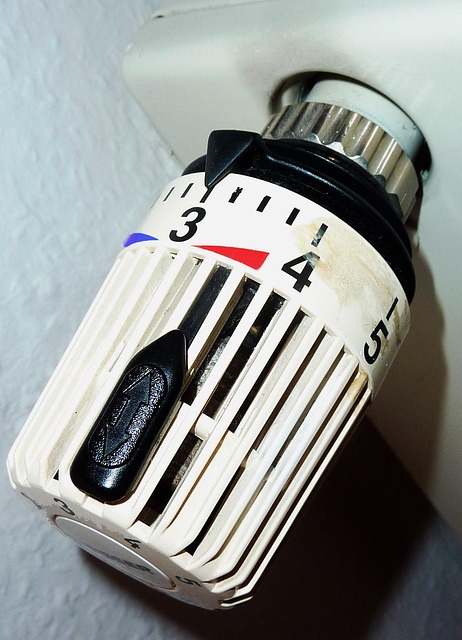How Much Do Full Mouth Dental Implants Really Cost for Seniors in Ireland?
Full mouth dental implants can transform quality of life for seniors, restoring function, confidence, and oral health. However, understanding the financial commitment involved is essential before proceeding. In Ireland, costs vary significantly based on materials, clinic location, and individual dental needs. This guide explores the factors that influence pricing, typical procedures involved, and practical advice tailored specifically for older adults considering this investment in their wellbeing.

Losing multiple teeth or dealing with failing dentures can significantly impact daily life, especially for seniors. Full mouth dental implants offer a permanent solution that restores both function and appearance. Unlike traditional dentures, implants are anchored directly into the jawbone, providing stability and preventing bone loss. For many older adults in Ireland, the question isn’t whether implants are worthwhile, but rather how much they cost and what influences that price.
Understanding the financial aspect of full mouth dental implants requires looking beyond a single number. Costs depend on numerous variables, from the type of implants used to the complexity of the individual case. This article breaks down the key elements that affect pricing, explains what the procedures entail, and offers guidance specifically relevant to seniors navigating this important healthcare decision.
Factors That Influence Cost for Seniors
Several elements determine the final price of full mouth dental implants in Ireland. The number of implants required forms the foundation of cost calculations. A full arch restoration typically requires four to six implants per jaw, though some cases may need more depending on bone density and jaw structure. Seniors with significant bone loss may require bone grafting procedures beforehand, which adds to both time and expense.
The type of implant system selected also affects pricing. Premium brands with extensive research backing and proven longevity tend to cost more than budget alternatives. Material choices for the prosthetic teeth matter as well. Porcelain crowns offer superior aesthetics and durability compared to acrylic options, but come at a higher price point.
Clinic location plays a role too. Dental practices in Dublin and other major cities generally charge more than those in smaller towns, reflecting higher operational costs. The experience and qualifications of the dental surgeon can also influence fees, with specialists in implantology or oral surgery typically commanding premium rates.
Additional factors include diagnostic imaging such as CT scans, temporary prosthetics during healing periods, and follow-up appointments. Sedation options, particularly important for anxious patients or lengthy procedures, may incur extra charges. Seniors should also consider potential complications that might require additional treatment, though reputable clinics often include contingency planning in their initial quotes.
Full Mouth Dental Implants Procedures
The journey to full mouth dental implants typically unfolds over several months and involves multiple stages. Initial consultation includes comprehensive examination, medical history review, and diagnostic imaging to assess bone quality and quantity. This planning phase determines the treatment approach and provides the basis for cost estimates.
The surgical phase involves placing titanium posts into the jawbone under local anaesthesia or sedation. For full mouth restoration, this may be completed in one session or divided across multiple appointments depending on the treatment plan. Advanced techniques like All-on-4 or All-on-6 allow immediate temporary teeth to be fitted on the same day, minimizing the time without functional teeth.
Following implant placement, a healing period of three to six months allows osseointegration, where the bone fuses with the titanium posts. During this time, temporary prosthetics maintain appearance and basic function. Seniors should expect dietary restrictions and careful oral hygiene protocols during healing.
Once integration is complete, final impressions are taken to create custom prosthetic teeth. These permanent restorations are then attached to the implants, completing the transformation. Follow-up appointments ensure proper fit, function, and patient satisfaction. Ongoing maintenance includes regular dental check-ups and professional cleanings to ensure longevity.
Understanding Cost Estimates in Ireland
Full mouth dental implant costs in Ireland vary considerably based on the factors discussed earlier. To provide context, here is a comparison of typical pricing structures from various types of providers across the country. These figures represent estimates and should be verified directly with clinics.
| Treatment Type | Provider Category | Cost Estimation (EUR) |
|---|---|---|
| Full Arch (Single Jaw) All-on-4 | Urban Specialist Clinic | €12,000 - €18,000 |
| Full Arch (Single Jaw) All-on-4 | Regional General Practice | €10,000 - €14,000 |
| Full Arch (Single Jaw) All-on-6 | Urban Specialist Clinic | €15,000 - €22,000 |
| Full Arch (Single Jaw) All-on-6 | Regional General Practice | €12,000 - €17,000 |
| Full Mouth (Both Jaws) All-on-4 | Urban Specialist Clinic | €24,000 - €35,000 |
| Full Mouth (Both Jaws) All-on-4 | Regional General Practice | €20,000 - €28,000 |
| Additional Bone Grafting (if needed) | Various Providers | €500 - €3,000 per site |
Prices, rates, or cost estimates mentioned in this article are based on the latest available information but may change over time. Independent research is advised before making financial decisions.
These estimates typically include the implants, surgical procedures, temporary prosthetics, and final restorations. However, preliminary treatments like extractions, bone grafting, or treatment of gum disease may incur additional costs. Seniors should request detailed written quotes that itemize all anticipated expenses to avoid surprises.
Advice Specific to Seniors
Older adults considering full mouth dental implants should approach the decision with careful planning. Medical considerations take priority, as certain conditions like uncontrolled diabetes, osteoporosis, or heart disease may affect eligibility or success rates. A thorough discussion with both dentist and primary care physician ensures safety and realistic expectations.
Financing represents a significant concern for many seniors on fixed incomes. While dental implants rarely qualify for public health coverage in Ireland, some private insurance plans offer partial reimbursement. Payment plans offered by dental clinics can spread costs over time, making treatment more accessible. Some seniors explore dental tourism, though this requires careful consideration of follow-up care and potential complications.
Lifestyle factors matter too. Smoking significantly increases implant failure risk, and many clinics require patients to quit before proceeding. Adequate nutrition supports healing, while conditions affecting manual dexterity may influence prosthetic design choices. Seniors should honestly discuss their daily routines and any physical limitations with their dental team.
Longevity and maintenance deserve consideration as well. With proper care, dental implants can last decades, potentially outlasting the patient. This makes them a worthwhile investment for many seniors, particularly those in good health. However, the ability to maintain excellent oral hygiene and attend regular check-ups is essential for long-term success.
Making an Informed Decision
Choosing to proceed with full mouth dental implants represents a significant commitment, both financially and physically. Seniors should consult multiple providers, comparing not just costs but also experience, technology, and patient reviews. Questions about success rates, warranty policies, and emergency protocols help identify reputable practitioners.
Understanding what the investment includes ensures fair comparison. Some quotes may appear lower but exclude essential components like temporary teeth or follow-up care. Comprehensive treatment plans that address all aspects of the process, though initially more expensive, often provide better value and fewer unexpected costs.
Ultimately, the decision should balance financial considerations with quality of life improvements. For many seniors, the ability to eat comfortably, speak clearly, and smile confidently justifies the expense. Full mouth dental implants offer functional and psychological benefits that extend well beyond monetary value, making them a transformative option for those who can manage the investment.
This article is for informational purposes only and should not be considered medical advice. Please consult a qualified healthcare professional for personalized guidance and treatment.




